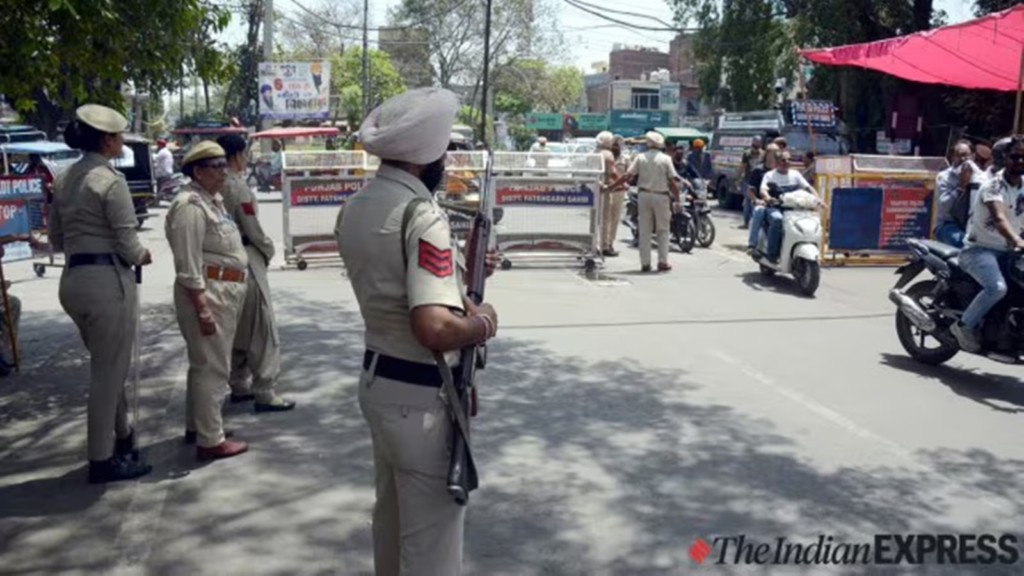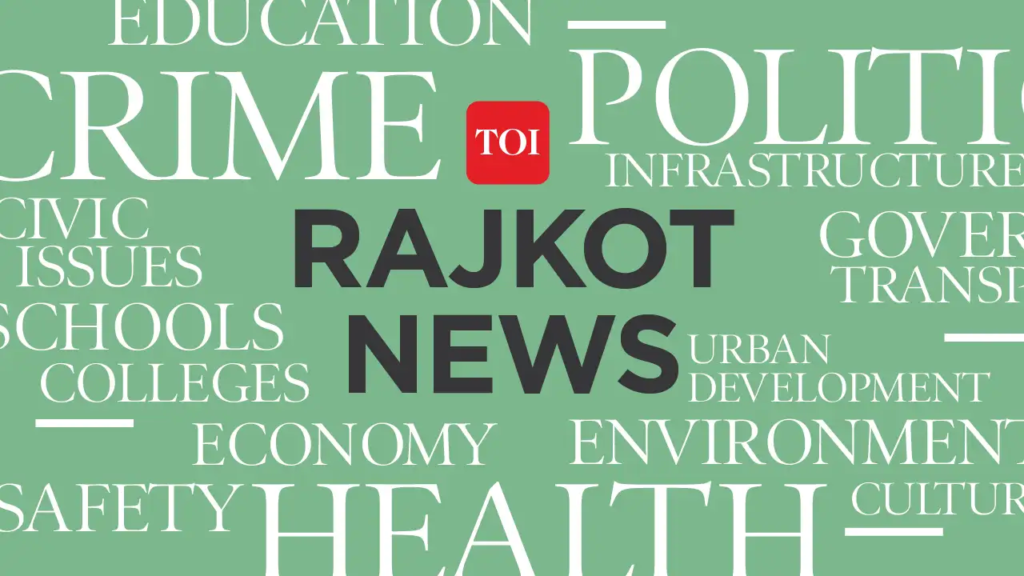In recent weeks, a shocking story has emerged from Punjab, India, causing widespread outrage in the United States and prompting law enforcement to investigate potential fraudulent schemes. Reports of individuals faking their deaths to claim insurance money or evade legal troubles have raised alarm, with U.S. authorities now looking into whether these schemes have crossed international borders. This developing story has captured public attention, blending elements of deception, financial fraud, and international intrigue. Here’s a closer look at the controversy, its implications, and the ongoing investigations.

The Scandal Unfolds: Fake Deaths in Punjab
The controversy began when reports surfaced in Punjab, a state in northern India, about individuals allegedly staging their deaths to exploit insurance policies or escape legal consequences. According to local authorities, several cases involved falsified death certificates, staged funerals, and even hired mourners to create the illusion of a person’s passing. These schemes were reportedly designed to deceive insurance companies, creditors, or law enforcement, allowing individuals to collect payouts or disappear without a trace.
In one high-profile case, a man from Punjab was discovered to have faked his death in a supposed car accident, complete with forged documents and a staged cremation. The scheme unraveled when inconsistencies in the paperwork raised suspicions, leading to a police investigation. Punjab police have since uncovered multiple similar cases, with some involving cross-border connections, raising concerns about the schemes’ reach into countries like the United States.
Why This Matters in the USA
The news has sparked outrage in the U.S., particularly among the Indian-American community and law enforcement agencies. Many in the diaspora are shocked by the audacity of these schemes, which not only exploit financial systems but also cause emotional distress to families and communities. The involvement of international networks has further heightened concerns, as U.S. authorities suspect that some of these fraudulent activities may be linked to organized crime groups operating across borders.
Insurance fraud, in particular, is a significant issue in the U.S., costing companies billions of dollars annually. The Punjab fake death cases have raised red flags about the potential for similar scams targeting American insurance providers. Authorities are now investigating whether individuals in the U.S. have collaborated with those in Punjab to orchestrate these schemes, possibly using falsified documents to claim life insurance payouts or other benefits.

The outrage extends beyond financial concerns. For many, the idea of faking a death is deeply offensive, as it manipulates the grief of loved ones and undermines trust in institutions. Social media platforms in the U.S. have been abuzz with discussions about the ethical implications of such schemes, with some users calling for stricter regulations to prevent fraud.
Police Investigations: Cracking Down on Fraud
Both Punjab and U.S. authorities are taking the matter seriously. In Punjab, police have launched a large-scale investigation into what they describe as a “complex web of fraudulent activities.” According to Punjab Director General of Police Gaurav Yadav, several arrests have been made, and authorities are working to dismantle networks involved in creating fake documents and orchestrating these schemes. The Punjab police have also seized forged certificates, financial records, and other evidence pointing to organized efforts.
In the U.S., law enforcement agencies, including the FBI and local police departments, are collaborating with international partners to investigate potential links to American citizens or businesses. The focus is on identifying whether U.S.-based insurance companies have been defrauded and whether individuals in the U.S. have facilitated these schemes, knowingly or unknowingly. Authorities are also examining financial transactions between the U.S. and India to trace the flow of money tied to these fraudulent activities.
The U.S. Department of Justice has emphasized that insurance fraud is a serious crime with severe penalties, including hefty fines and prison time. Investigators are urging anyone with information about suspicious activities related to fake deaths or insurance claims to come forward. The collaboration between U.S. and Indian authorities highlights the global nature of modern fraud and the need for international cooperation to combat it.

The Human Cost of Fraudulent Schemes
Beyond the financial implications, the fake death schemes have caused significant emotional harm. Families of those who staged their deaths have been left grappling with confusion, betrayal, and grief. In some cases, loved ones were unaware of the deception until authorities revealed the truth, leading to strained relationships and emotional trauma.
In the U.S., members of the Indian-American community have expressed frustration over the negative stereotypes these incidents may reinforce. Community leaders are calling for greater awareness about the dangers of fraud and the importance of ethical behavior. They also stress that these cases represent a small minority and should not overshadow the contributions of the broader Indian-American population.
The schemes have also sparked debates about the vulnerabilities in systems like insurance and immigration. Experts argue that loopholes in verification processes, both in India and the U.S., make it easier for fraudsters to exploit these systems. Strengthening document authentication and improving cross-border information sharing are seen as critical steps to prevent future scams.
Public Reaction and Social Media Buzz
The story has gained significant traction online, with hashtags like #PunjabFakeDeath and #InsuranceFraud trending on platforms like X. Users in the U.S. have shared their shock and anger, with many calling for justice and stricter oversight. One user posted, “Faking your death to scam insurance companies is beyond low. It’s a slap in the face to everyone who’s lost someone for real.” Others have expressed concern about the broader implications for trust in financial and legal systems.
The outrage is not limited to the U.S. In India, public reaction has been equally strong, with media outlets covering the story extensively. Editorials have called for harsher penalties for those involved in such schemes, arguing that they undermine public trust and strain law enforcement resources. The combination of local and international attention has made this a global story, with implications for both countries.
What’s Next: Preventing Future Frauds
As investigations continue, authorities are exploring ways to prevent similar schemes in the future. In Punjab, police are working with banks, insurance companies, and government agencies to improve document verification processes. They are also raising awareness about the signs of fraud, encouraging citizens to report suspicious activities.
In the U.S., insurance companies are reviewing their claims processes to identify vulnerabilities. Some are investing in advanced technologies, such as artificial intelligence, to detect fraudulent patterns. Law enforcement agencies are also advocating for stronger international partnerships to combat cross-border crime, including fraud and money laundering.
Experts suggest that public education is key to preventing fraud. By informing people about the tactics used in these schemes, authorities hope to reduce the likelihood of individuals falling victim to or participating in fraudulent activities. Community organizations in the U.S. are also stepping up, offering workshops and resources to help people protect themselves from scams.
A Call for Accountability
The Punjab fake death scandal has highlighted the lengths to which some individuals will go for financial gain, as well as the far-reaching consequences of their actions. For the Indian-American community, it’s a reminder of the importance of integrity and vigilance in the face of fraud. For law enforcement, it’s a complex case that underscores the challenges of tackling international crime.
As U.S. and Punjab authorities work together to unravel this web of deception, the public is watching closely. The outcome of these investigations could set a precedent for how similar cases are handled in the future, both in terms of legal consequences and preventive measures. For now, the outrage over these fake death schemes serves as a stark reminder of the need for trust, accountability, and cooperation in an increasingly connected world.
Also Know :- Brands Embrace User-Generated Content in 2025 to Build Trust and Engagement






